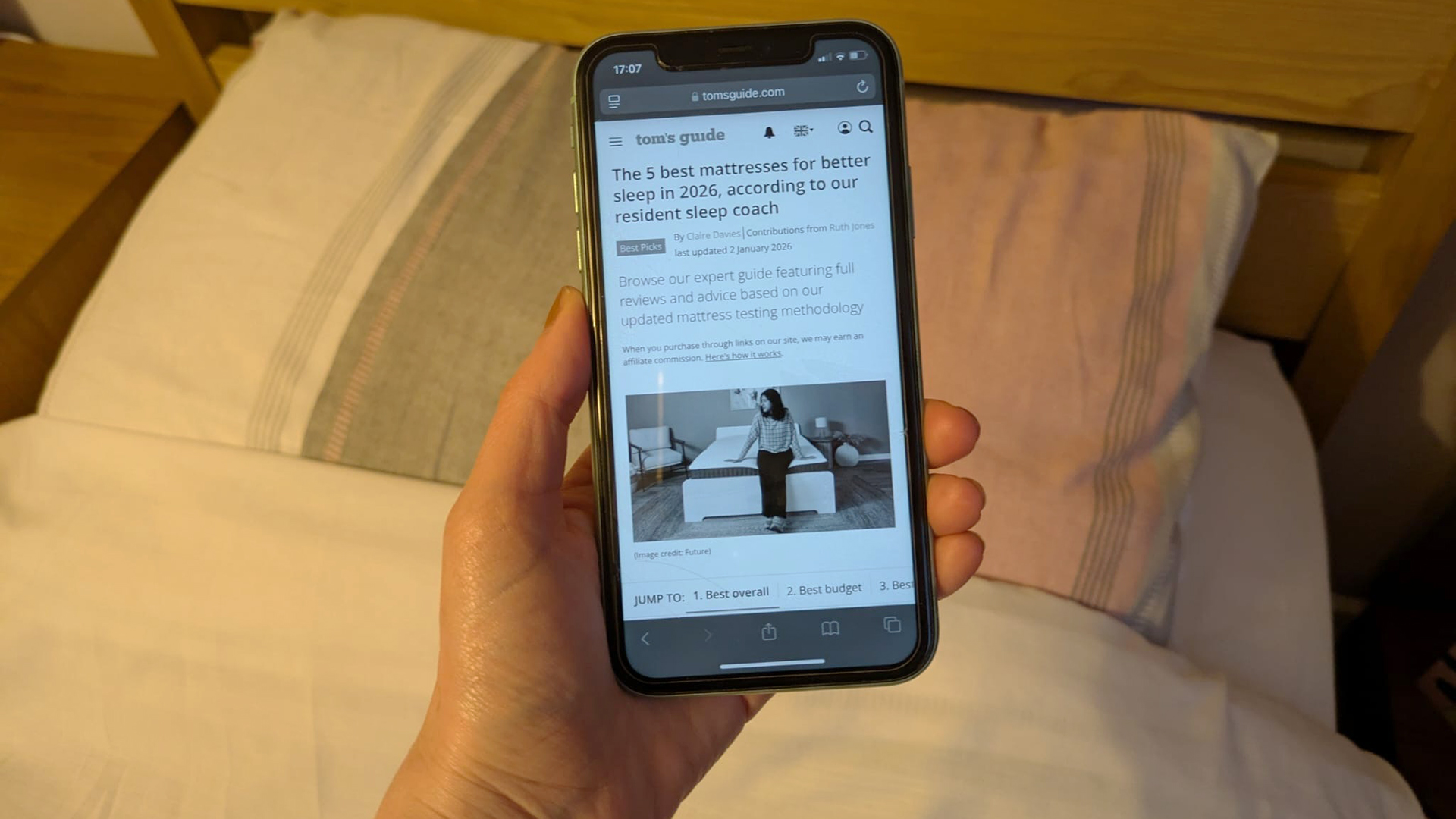Comcast Refusing Subpoenas Over Alleged BitTorrent Pirates
Now Comcast is denying subpoenas related to alleged BitTorrent pirates.
Here at Tom’s Guide our expert editors are committed to bringing you the best news, reviews and guides to help you stay informed and ahead of the curve!
You are now subscribed
Your newsletter sign-up was successful
Want to add more newsletters?

Daily (Mon-Sun)
Tom's Guide Daily
Sign up to get the latest updates on all of your favorite content! From cutting-edge tech news and the hottest streaming buzz to unbeatable deals on the best products and in-depth reviews, we’ve got you covered.

Weekly on Thursday
Tom's AI Guide
Be AI savvy with your weekly newsletter summing up all the biggest AI news you need to know. Plus, analysis from our AI editor and tips on how to use the latest AI tools!

Weekly on Friday
Tom's iGuide
Unlock the vast world of Apple news straight to your inbox. With coverage on everything from exciting product launches to essential software updates, this is your go-to source for the latest updates on all the best Apple content.

Weekly on Monday
Tom's Streaming Guide
Our weekly newsletter is expertly crafted to immerse you in the world of streaming. Stay updated on the latest releases and our top recommendations across your favorite streaming platforms.
Join the club
Get full access to premium articles, exclusive features and a growing list of member rewards.

TorrentFreak reports that Comcast is now refusing court-ordered subpoenas regarding BitTorrent lawsuits, claiming that they're intended to "shake down" its subscribers by coercing them to pay settlements.
It's a similar move made by Verizon Wireless as reported last month. The Big Red said it was refusing to hand over subscriber information to book publisher John Wiley and Sons, saying that Wiley intended to "harass, cause unnecessary delay, or needlessly increase the cost of litigation" regarding alleged BitTorrent pirates downloading the publisher's books.
Verizon also made known its doubts that a subpoena would lead to the discovery of "relevant information." Essentially the company said that BitTorrent downloads linked to an IP address doesn't necessarily mean that the subscriber is guilty of piracy -- someone else could have accessed the Internet through that IP using a different device.
As for Comcast, it initially complied with court-ordered subpoenas, but an ongoing battle in the Illinois District Court indicates that the company has changed its tune. Rather than hand over user information, the company asked to terminate the subpoenas based on the fact that the court doesn't have jurisdiction over all defendants because they don't live within the district in which they are being sued.
Does that sound familiar? It should, as this train of thought has terminated numerous John Doe lawsuits over the past year. Judges are beginning to throw BitTorrent-related lawsuits out of court for that very reason: that many IP addresses linking to John Doe individuals and grouped together in one bulk lawsuit don't reside within their district.
Comcast also now argues that copyright holders have no grounds to join numerous defendants in one lawsuit. Even more, Comcast is accusing copyright holders of exploiting the court in order to coerce defendants into coughing up money.
"Plaintiffs should not be allowed to profit from unfair litigation tactics whereby they use the offices of the Court as an inexpensive means to gain Doe defendants’ personal information and coerce ‘settlements’ from them," Comcast’s lawyers write.
Get instant access to breaking news, the hottest reviews, great deals and helpful tips.
"It is evident in these cases – and the multitude of cases filed by plaintiffs and other pornographers represented by their counsel – that plaintiffs have no interest in actually litigating their claims against the Doe defendants, but simply seek to use the Court and its subpoena powers to obtain sufficient information to shake down the Doe defendants," Comcast adds.
The attorney for adult publisher AF HOLDINGS retaliated, saying that "Comcast’s delay in objecting to the Plaintiffs’ subpoenas is part of a wider campaign to deny and delay the Plaintiffs’, and other similar copyright holders’, ability to protect their copyrighted works."
"Even after courts regularly order Comcast to comply with the subpoenas, Comcast fights tooth and nail to resist complying," the attorney added.
Kevin started taking PCs apart in the 90s when Quake was on the way and his PC lacked the required components. Since then, he’s loved all things PC-related and cool gadgets ranging from the New Nintendo 3DS to Android tablets. He is currently a contributor at Digital Trends, writing about everything from computers to how-to content on Windows and Macs to reviews of the latest laptops from HP, Dell, Lenovo, and more.
-
JamesSneed You should thank Verizon for refusing to hand out subscriber info first. No way Comcast would do this without Verizon setting the precedence.Reply -
brucen13 "It is evident in these cases – and the multitude of cases filed by plaintiffs and other pornographers represented by their counsel..."Reply
Love how Comcast wrote that! It implies that all plaintiffs in cases involving Comcast are pornographers. -
It definitely feels ludicrous to be cheering for these two companies, Verizon and Comcast. What next, ATT!?Reply
The world AS WE KNOW IT is changing. December 21, 2012: ATT decides to revoke data caps on all usage plans. -
Khimera2000 Didn't expect this news when I woke up this morning : )) Comcast does something good for there customer, that's a shocker... The thought that the good came out of there Legal Department even more of a surprise 0.oReply -
inerax brucen13"It is evident in these cases – and the multitude of cases filed by plaintiffs and other pornographers represented by their counsel..."Love how Comcast wrote that! It implies that all plaintiffs in cases involving Comcast are pornographers.Reply
Internet is used for anything else? lol JK -
gm0n3y I have hope that eventually the courts will realize that an IP address != a person. There have already been legal precedents for this, but it is far from being widely accepted. These lawsuits are nothing but extortion. As mentioned in the article, the plaintiffs have no desire to go to court and are just trying to milk people for money. "We're suing you for $200,000 but will settle out of court for $1500". I think there needs to be a law against frivolous / predatory lawsuits.Reply -
Netherscourge Wait a second... did I read this correctly?Reply
COMCAST is actually DEFENDING it's customers and their rights?
IN A COURTROOM? WITH THEIR OWN LAWYERS?
/gasp
Oh, I see. Next month, all our Comcast rates will go up a few more dollars to pay for all the legal fees. And we're all getting a new QVC shopping channel too.
Now it makes sense.
 Club Benefits
Club Benefits










